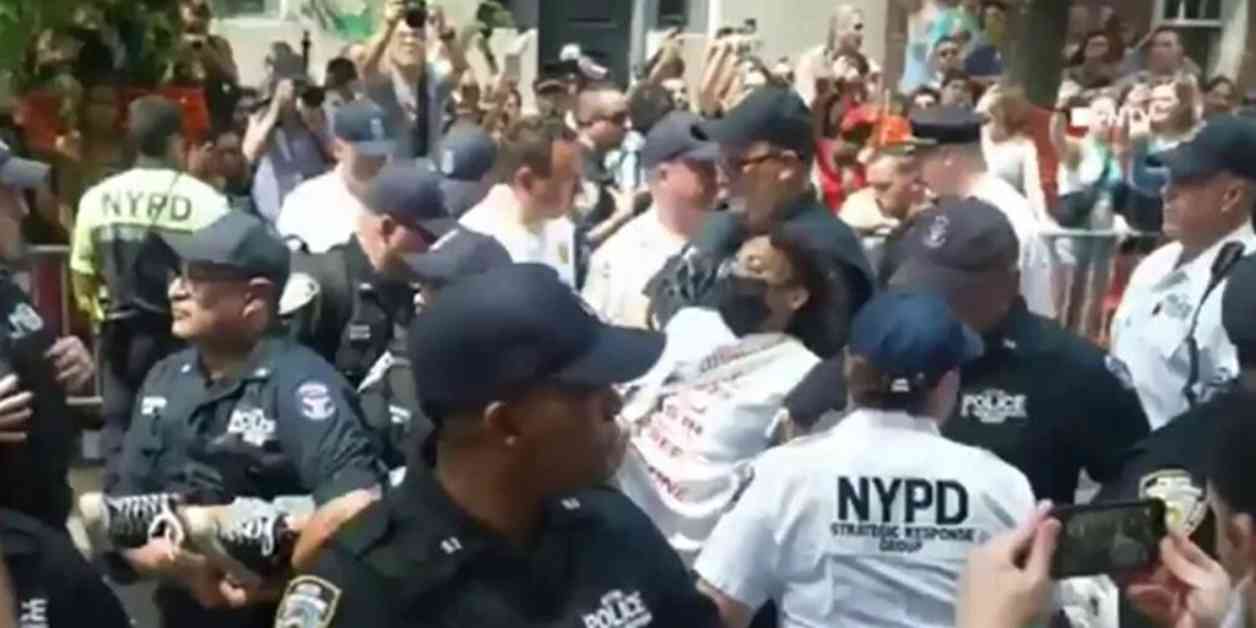On the final day of Pride month, the New York Pride parade was disrupted by anti-Israel agitators who blocked the route and vandalized floats. Videos posted on social media showed protesters sitting in the street with posters shouting “Free Palestine.” Sandra Pérez, the executive director of NYC Pride, acknowledged the increased presence of protests at Pride events this year, emphasizing that Pride itself was born out of protest.
Some protesters went as far as spray-painting vehicles and floats during the parade. Reports of brawls and clashes involving anti-Israel protesters emerged, with some individuals climbing over barricades and tossing fake blood. Police had to handcuff dozens of protesters with zip ties to maintain order. Despite the disruptions, the Pride parade’s theme of “reflect, empower, unite” remained central to the event.
In Philadelphia, a group of anti-Israel protesters brought the Pride parade to a halt with chants calling for the end of “genocide.” Similar incidents occurred in Boston and Denver, where hostile protesters were arrested. The FBI and DHS issued warnings about a heightened threat of terrorism during Pride Month, citing previous incidents like the Pulse Nightclub shooting in Orlando.
In St. Louis, protesters blocked Market Street, delaying the Pride parade until law enforcement intervened. The swift action led to the clearance of the protesters and the continuation of the parade. These disruptions highlight the intersection of political activism and LGBTQ rights, raising concerns about the safety and security of Pride celebrations.
Despite these challenges, Pride parades in San Francisco, Minneapolis, and Seattle proceeded with thousands of attendees celebrating LGBTQ pride. Seattle, in particular, marked 50 years of Pride with an expected turnout of over 300,000 individuals. The resilience and unity displayed at these events underscore the ongoing fight for equality and acceptance within the LGBTQ community.
As Pride Month comes to a close, the incidents of disruption and protest serve as a reminder of the ongoing struggles faced by marginalized communities. The intersectionality of issues, such as LGBTQ rights and political conflicts, highlights the complexity of social movements and the need for dialogue and understanding. Pride, rooted in protest and activism, continues to be a platform for marginalized voices to be heard and supported.


